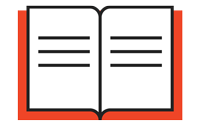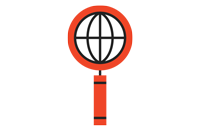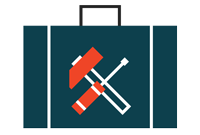
Scaling Impact: Extending Input Delivery to Smallholder Farmers at Scale
- Partner: Leveraging Economic Opportunities (LEO)
- Publication Type: Report
- Date: January 2015
This paper strives to inform the development of market systems that improve smallholder access to and adoption of commercial inputs. Previous studies have focused primarily on cases where donor funding has facilitated market change. This report, on the other hand, considers a diversity of models but focuses particularly on those that have reached significant scale.
Read More
Driving Innovations to Scale in Agricultural Market Systems
- Partner: Agrilinks and Leveraging Economic Opportunities (LEO)
- Publication Type: Blog Post
- Date: December 16, 2014
Smallholder farmers represent a majority of the world’s farmers and a majority of the world’s poor. Low agricultural productivity is a key driver of their poverty. Yet while the application of improved inputs such as fertilizer, agrochemicals and seeds have significant potential to increase both agricultural yields and farmer income, input access among smallholder farmers remains low.
Read More
Women’s Economic Empowerment: Pushing the Frontiers of Inclusive Market Development
- Partner: Leveraging Economic Opportunities (LEO)
- Publication Type: Report
- Date: November 2014
The framework presented in this paper identifies gender considerations and provides examples for facilitating women’s economic empowerment in inclusive market systems. By explicitly taking gender dynamics into account, inclusive market systems can empower women, leading to wide-ranging development dividends for both women and men, their families, and wider society.
Read More
AKF’s Women-only Markets: A Promising Model
- Partner: Aga Khan Development Network
- Publication Type: Brief
- Date: April 2014
Aga Khan Rural Support Programme (AKRSP) realized a catalytic intervention was needed to support women’s access to public spaces, demonstrating that women can run businesses. In 2007, the first women-only markets were opened as part of a wider women’s poverty reduction initiative. A total of 29 markets were launched over the next three years. This report presents the results of this intervention and the lessons learned from the operational issues encountered.
Read More
Beyond Financial Services: Improving Access to Basic Financial Services and Agricultural Input and Output Markets by Smallholder Farmers in Zimbabwe
- Partner: Aga Khan Foundation (AKF)
- Publication Type: Case Study
- Date: April 2011
This case study examines CARE International’s efforts to promote access to basic financial services and agricultural input and output markets in very poor areas of rural Zimbabwe. This case study investigates two research propositions: (a) savings groups enhance the capacity of smallholder farmers to purchase agricultural inputs; and (b) linkages of savings groups to an agro-dealer model improves access to and participation in agricultural input and output markets.
Read More
Measuring the Results of Women’s Economic Empowerment in Private Sector Development: Guidelines for Practitioners
- Partner: Donor Committee for Enterprise Development (DCED) Women’s Entrepreneurship Development Working Group
- Publication Type: Toolkit
- Date: July 2014
Most guidelines on women’s economic empowerment focus on theory of guiding implementation practices but not on measurement practices tailored to private sector development (PSD) programs. Moreover, more PSD programs focus on measuring enterprise-level results instead of household level results. This document presents the key findings on measurement practices of women’s economic empowerment specifically.
Read More
Breaking Barriers to Youth Entrepreneurship & Employment through Savings Groups
- Partner: The SEEP Network
- Publication Type: Webinar
- Date: June 24, 2014
Can youth savings groups help foster entrepreneurship and employment among young people, supporting them in their search for decent work and their struggle against poverty? This webinar presented key findings from a paper on the topic commissioned by Plan UK; programmatic considerations on what is working and what is not from the Banking on Change partnership; and learnings from Freedom from Hunger's AIM youth initiative.
Read More
DCED Webinar: Measuring Women’s Economic Empowerment
- Partner: Donor Committee for Enterprise Development (DCED)
- Publication Type: Webinar
- Date: June 17, 2014
Why measure women’s economic empowerment? Why are household level indicators important for measuring changes in women’s economic empowerment? In this webinar, Erin Markel presents guidelines, good practices, and lessons learned for Measuring Results of Women’s Economic Empowerment in Private Sector Development.
Read More
Measuring Job Creation in Private Sector Development
- Partner: Donor Committee for Enterprise Development (DCED)
- Publication Type: Working Paper
- Date: June 2014
There are significant challenges impeding the measurement of job creation. The complexity of the topic makes measurement challenging and error-prone. Few guidance documents are available presenting methodologies for measuring project-level impacts on job creation. The aim of this paper is to provide guidance and practical examples on measuring job creation impacts.
Read More
Evaluating Systems and Systemic Change for Inclusive Market Development
- Partner: Leveraging Economic Opportunities (LEO)
- Publication Type: Report
- Date: June 2014
This report presents a literature review on evaluating systems and systemic change. This review highlights findings that can contribute to developing an evaluation framework for interventions to facilitate inclusive market systems development and empirical approaches for identifying and monitoring systemic changes.
Read More


